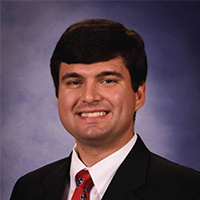 Allons RICO Act Lawyers, Tennessee
Allons RICO Act Lawyers, Tennessee
Sponsored Law Firm
-
 x
x

Click For More Info:
-
The Law Offices of Richard L. Cooper, P.A.
848 Brickell Avenue Suite 800 Miami, FL 33131» view mapDWI/DUI, Drug Trafficking, Felony Nationally Ranked Top 40 Under 40
With Richard L. Cooper you can expect a trusted confidant who will work diligently to fully understand your case and determine a road map to help you regain control of your life.
800-756-2781
Not enough matches for Allons RICO Act lawyer.
Below are all Allons Criminal lawyers.
Sponsored Lawyers
1-10 of 13 matches
Accident & Injury, Estate Planning, Litigation, Business, Criminal
Matthew is a proud native-born Tennessean and the third generation to live on my family’s farm. His roots trace back to his ancestor and the first governor of the state of Tennessee, John Sevier. While at the University of Tennessee College of Law, Matthew concentrated his studies on advocacy and dispute resolution. Prior to law school, he worked as an agent with Farm Bureau Insurance of Tennessee. Matthew understands the importance of communication, honesty, hard work, determination, and treating people the way you would want to be treated. He is honored to serve the legal needs of individuals and companies with interests in and throughout Tennessee.
(more)



 Richard L. Cooper Miami, FL
Richard L. Cooper Miami, FL AboutMiami Attorney at Law
AboutMiami Attorney at Law ServicesCriminal Defense
ServicesCriminal Defense

